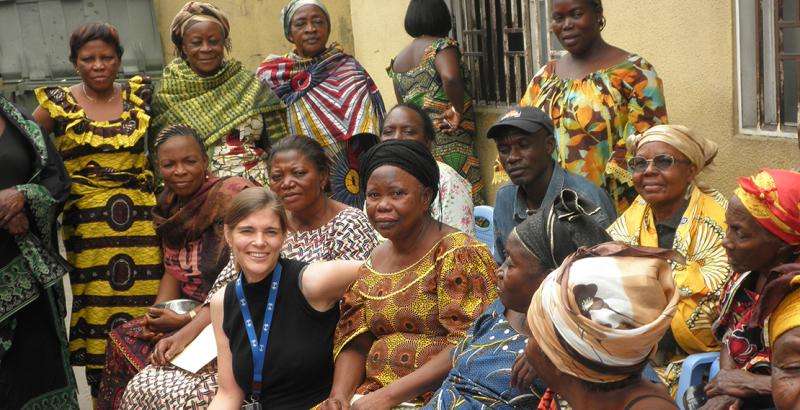Credit: Institute of Tropical Medicine in Antwerp
Globally about 442 million people live with diabetes, most of them in low-income countries, where health systems often function poorly. As they are not equipped to follow-up on patients or improve the quality of care, chronic disease management is largely the responsibility of the patients. In her doctoral thesis, Dr Josefien van Olmen of the Antwerp Institute of Tropical Medicine (ITM) says that much-touted mobile technologies for self-management alone will not solve the problem.
Dr van Olmen and colleagues studied how health care systems in low-income countries can improve care for people with chronic diseases and support the self-management of patients, through the use of new features such as mobile technologies. They investigated how diabetes care programmes have developed in three countries: the Democratic Republic of Congo, Cambodia and the Philippines. The researchers also looked at the effects of a new mobile health (mHealth) intervention in all three countries.
This multi-country study involved almost 1500 diabetes patients, who were followed-up multiple times during the course of two years. The patients received text messages several times a week that highlighted the importance of healthy eating habits, doing more physical exercise or wearing shoes to avoid foot ulcers, a common effect of long-term diabetes.
"These people make day-to-day decisions about behaviours that potentially influence the course of their illness," said Josefien van Olmen, "so it is essential that they are well-informed. Our intervention was designed to change their lifestyle, their behaviour, which was an ambitious goal."
"Our study was different from other mHealth studies in terms of its the duration, the variation of patient characteristics and the scope of the intervention. We also faced many unforeseen difficulties along the way, ranging from technical issues such as filled inboxes or lost phones to challenges at programme level."
The researchers found that the intervention via text messages did not lead to more people with controlled diabetes after two years, showing that more is needed to improve the fate of diabetes patients in low-income countries. At the end of the study, 34% of the patients receiving SMS had well-controlled levels of blood glucose, which was, statistically, not more than the patients who received routine care.
"However, there were some improvements for all patients in the study which illustrate the influence of the overall programme in which the patient participated. For instance, their knowledge and attitude of their own illness showed considerable improvement. In addition, there were improvements in the pharmacological management of hypertension and diabetes, with an increase of more than 10% of people receiving medication for hypertension, added van Olmen. "Mobile health is not a game changer in itself. Its integration into the overall programme and the quality of the overall programme are far more crucial."
The lessons learnt are relevant for other chronic diseases as well. According to van Olmen's study, tackling chronic diseases in low-income countries requires interventions focusing on health care providers, patients and their families alike.
More information: The thesis is available online: dare.ubvu.vu.nl/handle/1871/54782
Provided by Institute of Tropical Medicine Antwerp





















